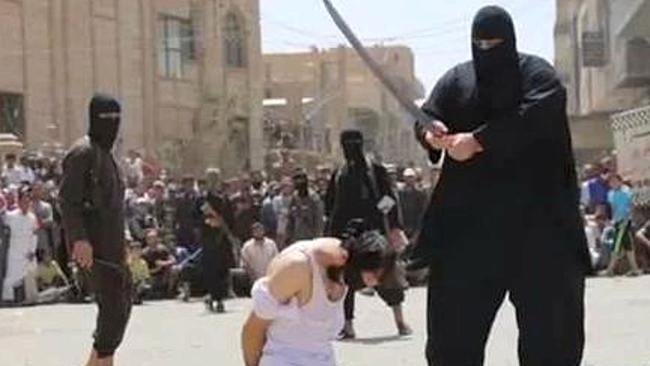Former PM Tony Abbott right to urge escalating military response to ISIS
THE objections to escalating military action against Islamic State, especially by coalition ground forces, are no longer persuasive.

Opinion
Don't miss out on the headlines from Opinion. Followed categories will be added to My News.
ON his final Friday as prime minister, I dined with Tony Abbott at Aubergine Restaurant in Canberra.
Befitting the anniversary of the 9/11 attacks on the US, our conversation was dominated by the state of the Middle-East and Australia’s military contribution to the coalition deployed to degrade the military capability of ISIL.
Abbott remains passionate about national security. He and his former defence minister, Kevin Andrews, have argued for an expanded role for Australian ground forces in Iraq. Although dismissed as deliberate ‘‘sniping’’ and undermining by those critics who insist he should retire, his contribution was measured.
Last September, Abbott was frustrated at the lack of a serious effort to destroy ISIL. A number of senior former officers to whom I spoke shared his concerns about the slow tempo of the air campaign. They believed coalition aircraft needed to aggressively target ISIL and offer no respite.
Such concerns were justified. Abbott had been briefed on Australia’s air campaign and had been bemused when told that only 20 per cent of our strike sorties had culminated in the release of a weapon. Most of our aircraft were returning to base without having dropped a bomb.
A combination of highly restrictive rules of engagement and poor training among the supported Iraqi ground forces contributed to this. Exacerbating such constraints was a pervasive mindset of risk aversion in our Defence bureaucracy.
From their perspective, the primary objective of our military contributions to the US-led coalition is to be seen as a reliable ally. Tangible military results are considered to be of secondary importance to military diplomacy.
Abbott grasped all these facts and wanted Australia and the coalition to smash ISIL. He understood that he could not unilaterally overcome the prevailing inertia. While our Air Task Group had some crucial capabilities, especially in airborne refuelling and airborne battle management and surveillance systems, our contribution could never be decisive.
He was inclined to generate some moral pressure on the White House, being convinced that Barack Obama’s strategy was too diffident to inflict fatal damage on Islamic State.
First, he was inclined to approach both the British and the French to join him in a united front to lobby Obama at the G20 meeting to dramatically escalate the air campaign. His cordial personal relationships with David Cameron and Francois Hollande gave him confidence that they would be amenable to his approach.
Secondly, he believed that Australian Special Forces should be deployed to find and kill ISIL leaders. Specialist Joint Terminal Attack Controllers should also be deployed with Iraqi forces to direct air strikes with greater discrimination and precision.
While this would have entailed greater risk to our troops, there is no risk-free way to kill an enemy as fanatical as this. It would have significantly reduced the risk of civilian casualties by ensuring munitions released by our aircraft only struck military targets and would be only a modest escalation of our contribution.
Last week the Australian Defence Force released footage of a successful strike by four Hornet aircraft against a munitions dump near Islamic State’s headquarters in Raqqa in Syria. It was an impressive example of the bravery and skill of our aircrew.
Sources have told me the incidence of weapons release by Australian crews is now nearly 100 per cent and our strikes have intensified over the past three months. Coalition planners claim ISIL is now under considerable pressure and point to the recapture of Palmyra by Syrian forces.
However, that success would merely seem to vindicate the more aggressive bombing campaign conducted by Russian aircraft, whose rules of engagement are less scrupulous than ours. In any event, the recovery of territory and the destruction of stores is not going to make Australia or Western Europe safer from Islamic terrorism.
Since its major offensive operations in 2014 Islamic State has developed an aura of invincibility. It swept all before it while the West has dithered. They kill and we hold candlelight vigils and send emotive tweets.
This explains its ability to recruit foreign-born fighters and to inspire attacks by Muslims living in the West. The only way to puncture that aura is by delivering a devastating military defeat and inflicting heavy casualties.
The objections to escalation of military action, especially by coalition ground forces, are no longer persuasive.
Despite losing some territory in Iraq and Syria the threat of ISIL here and in Europe is growing. It is time to take the fight to them and let them hold the candlelight vigils.
Catherine McGregor is a former top military aide and an Australian of the Year finalist.


